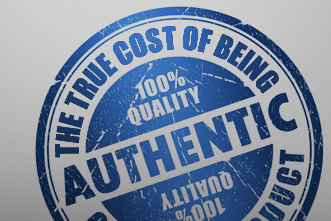Be real! Be authentic! Be honest! It feels like I’m hearing more and more leaders embrace the idea of transparency and authenticity in ministry. From a leadership standpoint, we get it. Cerebrally, we embrace this idea, but emotionally, do really we understand what it costs us to get there, and are we willing to allow ourselves to be vulnerable in the process?
Jacob walked with a limp. Paul had a thorn in his flesh. John was banished to an island, abandoned and alone. We connect with these leaders because we’ve all felt the plight of stumbling in our walk, dealing with pain, and feeling alone in ministry. The shame of brokenness does not turn us away from these leaders but, in fact, draws us near. Fragile vulnerability exposes humanity.
I grew up in an area amongst people with a high value on being authentic or “real,” but viewed vulnerability as nothing more than weakness. Ambitious in leadership and life, I set out to be as transparent as possible while maintaining the generational and cultural ideas of performance and perfection.
To the outsider or the person sitting in an auditorium or pew, my fear was so well hidden. Slightly expose a wound or broken piece of me, deflect with humor, then cover with a Scripture.
It was the safe and controlled way to manage transparency. And by “manage,” I mean protect the image of pristine Christian perfection with a hint of humility everybody wants to see a leader possess. By controlling my transparency, I didn’t have to deal with vulnerability.
Vulnerability seemed mercurial, unmanageable, and dangerous. Young but not stupid, I knew vulnerability left people open to physical harm and emotional attack because it exposed the fear and anxiety of never being enough. Not being smart enough, strong enough, educated enough. Not being tall enough, cool enough, beautiful enough. The shame of not being _________ enough.
Is this surprising? It shouldn’t be. We live in an economy of scarcity, so it’s easy to believe we’ll never be enough because we don’t have enough.
Not enough is a term I grew accustomed to hearing as a child. Whether food or finances or aptitude or social status, I felt labeled and began to believe that since my family didn’t have enough, I wasn’t enough.
Even today, the remnants of fear still permeate my life. Honestly, I’m afraid to talk about being afraid. I’m afraid of public opinion and criticism. I’m afraid of failing as a leader, wife, and stepmother. I’m afraid of embracing my culture without losing my identity. I’m afraid of being viewed as the dumb, poor kid again. I’m afraid of following my dreams at the expense of my family. I’m afraid one day everyone will find out that I have no clue how I got to where I am, and I’m afraid of admitting it. Not until recently in leadership and ministry have I begun to wrestle with the idea of fear and vulnerability and how they both play a part in authenticity.
According to sociological research, fear is the proponent that will keep us from vulnerability. As beings hard-wired for connection and acceptance, our relationship with others is threatened by exposing our fear or shame. But it is the deconstructing of our shame and acknowledging our fear that connects us on deeper levels, allowing those in our community to sort through redemption, acceptance, and find the beauty in brokenness.
Saying you’re authentic without feeling the fear of shame, the embarrassment of failure, or the fragility of vulnerability is impossible. When does authentic vulnerability move from a cerebral understanding to an emotional connection? When you can stand in front of the body of Christ acknowledging the fear of failure, the pride of prejudice, the brokenness of emotional, physical, or financial poverty and admit that, without Him, I can do nothing (John 15:5).













